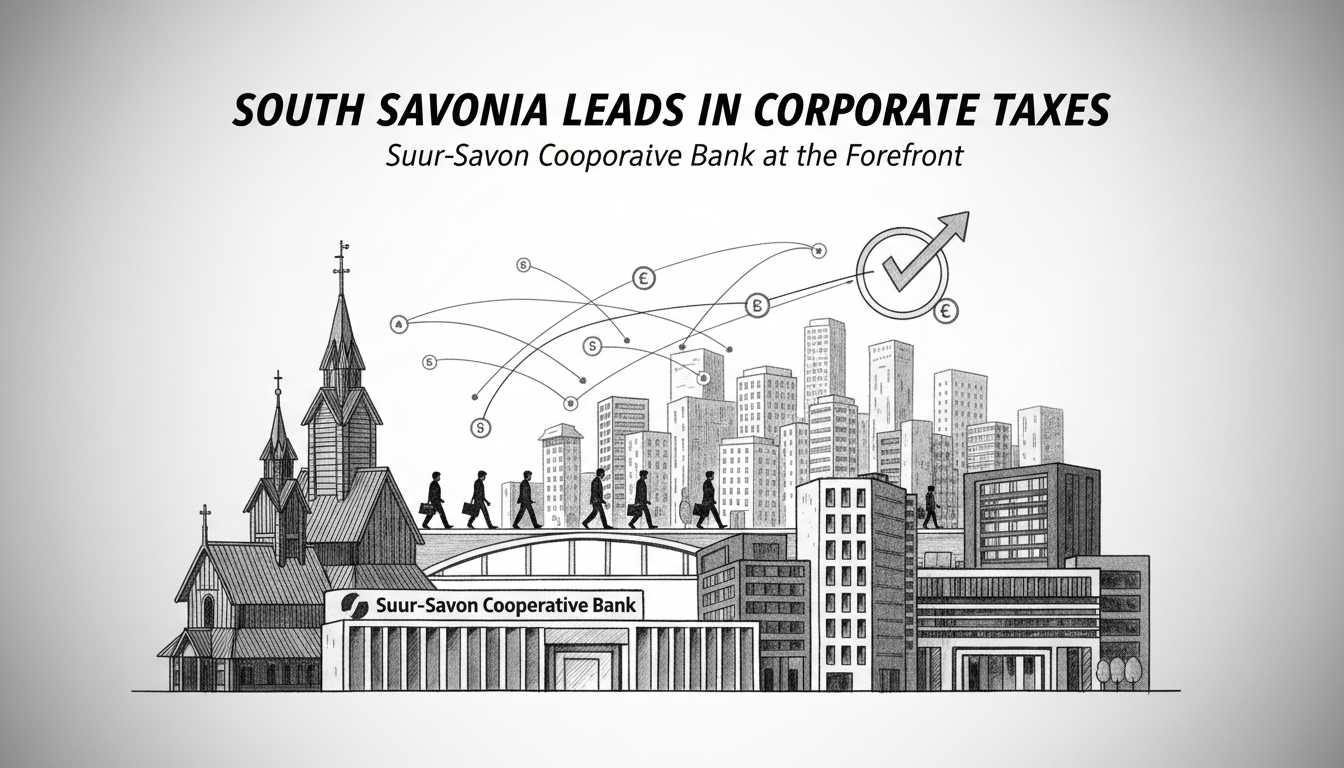Suur-Savon Cooperative Bank remains the largest corporate taxpayer in Finland's South Savonia region. The bank reported profits of 39.4 million euros during the latest reporting period. It paid 7.9 million euros in corporate taxes based on these earnings. This represents a notable decrease from the previous year's results. The bank's profits fell by nearly 4 million euros compared to the preceding fiscal period.
Half of South Savonia's top corporate taxpayers operate from Mikkeli, the region's largest city. This concentration highlights Mikkeli's economic importance within the regional framework. New names have emerged on municipal-level taxpayer lists across the region. These changes indicate shifting economic patterns at the local level.
Corporate taxation in Finland follows a standard rate applied to business profits. The system funds public services across municipalities and regions. Tax revenue distribution affects local infrastructure development and community services. Understanding these payments helps reveal regional economic health and business performance.
Why does corporate tax payment data matter for international readers? These figures provide concrete indicators of business stability and regional economic vitality. Foreign investors monitor such information when considering Nordic market opportunities. The data also reflects how Finnish companies contribute to public finances and community development.
For expatriates and international business professionals, these tax patterns reveal important insights. They show which companies maintain strong financial performance despite economic challenges. The concentration of major taxpayers in specific locations indicates regional economic hubs. This information helps international stakeholders understand where economic activity concentrates within Finnish regions.
What might explain the profit decrease for the leading taxpayer? Multiple factors could contribute, including changing market conditions and operational costs. The Nordic banking sector faces particular challenges in the current economic environment. Interest rate fluctuations and digital transformation investments affect profitability across financial institutions.
The appearance of new names on municipal tax lists suggests evolving business landscapes. Smaller companies may be growing into significant contributors. Established businesses might be facing new competitive pressures. These shifts reflect the dynamic nature of regional economies across Finland.
Corporate tax data provides one measure of business health, but it represents just part of the picture. Employment figures, investment levels, and innovation activities complete the economic portrait. Still, tax payments remain a crucial indicator of corporate citizenship and financial substance.
The Nordic model emphasizes corporate responsibility and community contribution. Tax payments represent one key aspect of this social contract. Businesses that consistently appear as top taxpayers demonstrate their embedded role in regional economies. Their performance directly impacts public service funding and community development.

